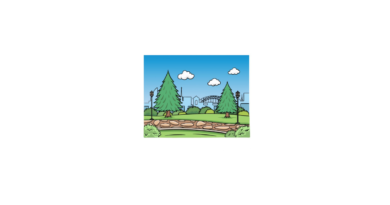Roles and Responsibilities a Project Manager Should Have
The project manager is juggling their time between people, projects, clients, and contemporary Agile tools in the concrete jungle in which we currently find ourselves. They can be constantly exhausted and, at times, burned out because they don’t know what to focus on first or how to prioritize their energy. That is until they realize what all the project manager roles and responsibilities entail.
In general, a project manager is primarily in charge of developing a team that is capable of operating independently. They need to consider every factor, from risks to resources, from building a project’s foundation to motivating a team to work toward a common objective. The skills required for being a responsible project manager is discussed on PMP bootcamp of eduhubspot platform thoroughly.
What is the role of a project manager?
Executing and completing a project is one of the project manager roles and responsibilities.
A project manager may be in charge of the creation or application of new software, the introduction of a new product, or even the comprehensive revision of a company’s marketing plan.
Project managers typically oversee the completion of a company’s most crucial projects, so they must possess exceptional leadership, coordination, and motivational skills.
In addition to supervising every aspect of project planning and execution, project managers are frequently available to address issues as they arise.
The best project managers can adapt to shifting conditions and find creative ways to inspire their team members.
Project manager responsibilities and role
Project management is a delicate fusion of art and science, and in the modern business environment, project managers should be familiar with all cutting-edge project management tools and industry jargon.
In terms of people and resource management, today’s project management trends have expanded to encompass several industries.
Let’s go over every project manager’s fundamental and most significant project manager roles and responsibilities:
Organizing every step, including execution and delivery
A project manager should ideally plan a strategy to accomplish more with fewer resources. Less refers to fewer resources and less time, while more refers to more results, more quality, and greater client satisfaction. Therefore, it is the responsibility of the project manager to identify the quickest and most straightforward route to achieving whatever the client or stakeholder wants to achieve.
Leading the group to a shared objective
Maintaining the team’s efforts in line with everything the organization wants to accomplish is another one of the many project manager roles and responsibilities. Making a plan to assist the team in easily achieving the goals will require serious effort. For everyone to work to the best of their abilities, you would need to give them the motivation they need.
Effective work delegation
It becomes crucial to assign tasks to teams carefully in many circumstances, such as large projects or tasks that are part of a project. Every project manager must adhere to this leadership style, be skilled at it, and eventually, it becomes their responsibility. This leadership style must be acquired over time. A manager shouldn’t abuse this authority by criticizing or minimizing the team members. The team members’ tasks need to be prioritized for them to be more effective in their roles.
The managers should be aware of the strengths and weaknesses of their teams to assign tasks to them appropriately. Be a good leader who, through effective delegation, cultivates a culture of trust.
Managing the time resource
The project managers must determine whether the project has succeeded or failed to leave a good impression on stakeholders and clients. An effective project management team roles and responsibilities will be able to negotiate deadlines that the team can work with.
Taking charge of the deployment’s deliverables
The project manager is also responsible for making sure that the deliverables are made on schedule and budget. With PMI PMP bootcamp you will be able to get information regarding the project management course in depth.
Tracking obstacles and keeping track of progress
The majority of the project manager’s time is spent keeping track of the progress of the various projects. A project manager must monitor the project’s progress after it has begun to ensure that it is proceeding as planned. In the middle of the project, various systems, such as status reports, meetings, and informal updates, are used to track progress. If the project managers choose an appropriate management system, this responsibility will be made simpler.
Holding routine meetings
All project managers find it challenging to plan regular meetings, and it isn’t always effective. However, methodologies like the Scrum framework recommend having a daily 15-minute stand-up so the project manager can establish a baseline for the team. You’ll discover that holding meetings on time, with a set agenda, is good for your project and will undoubtedly result in success.
By making the project’s rules clear to the entire team, the meeting’s goal should be achieved. The project managers should be prepared to start planning as soon as the goals are set. They can schedule meetings and adhere to them unless an emergency arises that requires changing the schedule.
Forming a common vision
A project manager needs to be able to see the big picture of any project and have a clear sense of where they want to take it. The vision should be communicated to the entire team so that they are aware of how crucial their contributions are to achieving the desired outcomes. The team should be aware of the workload and make every effort to turn objectives into missions. The manager should establish the proper attitude to ensure easier sailing moving forward.
Taking care of reports and documentation
The project manager must then provide the necessary documentation to present the final reports to clients and identify the areas that require further development once the project is finished on schedule and within budget. A project manager’s primary duty for project development includes this.
Developing a Plan B
The roles and duties of a project manager extend beyond the project’s planning phase to include getting ready for unfortunate circumstances and unforeseen events. To ensure that all progress is preserved when and if the s— hits the fan, the project manager must know the fundamentals of risk and change management.
Keeping the group together
A project manager must ensure that the team functions flawlessly as a cohesive whole in addition to recruiting passionate, independent team members. The team needs to stay harmonious and build trust among its members for everyone to work more efficiently and quickly.
Conclusion
When it comes down to it, a project manager’s job is to ensure that the company remains profitable by providing the teams with the effective solutions they require. As you may already be aware, this calls for managing the team, keeping tabs on client expectations, and managing the schedule and overall task management.



